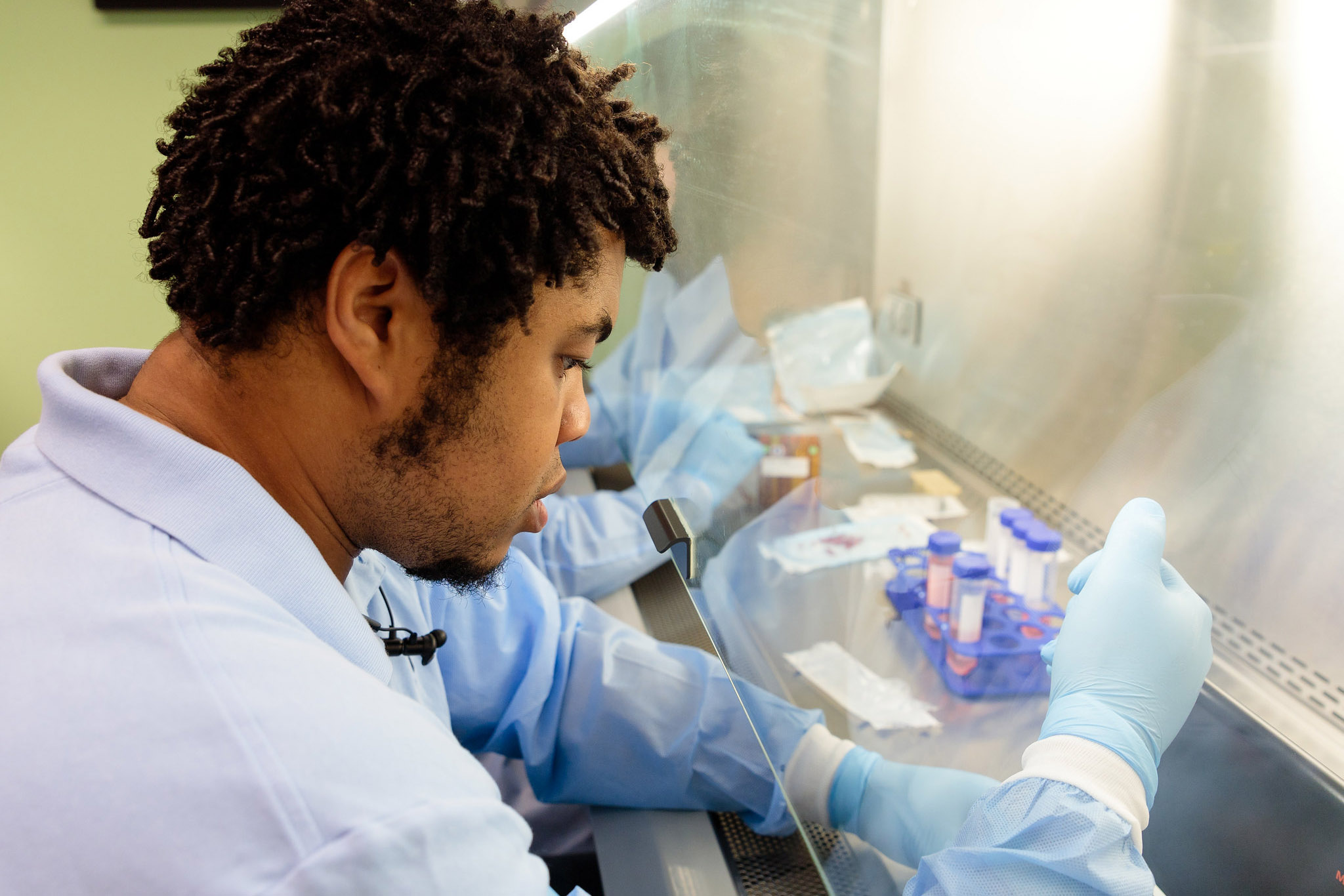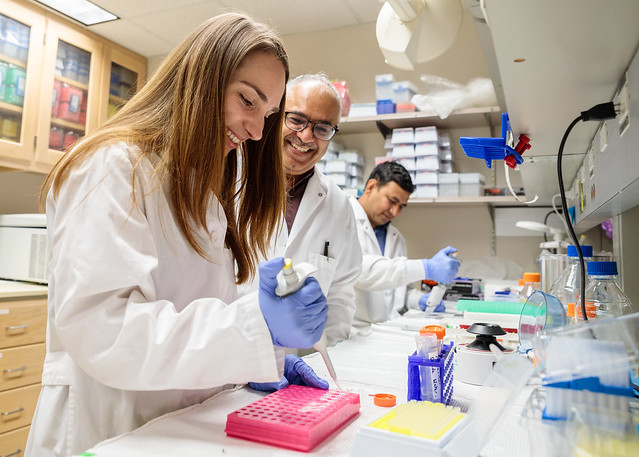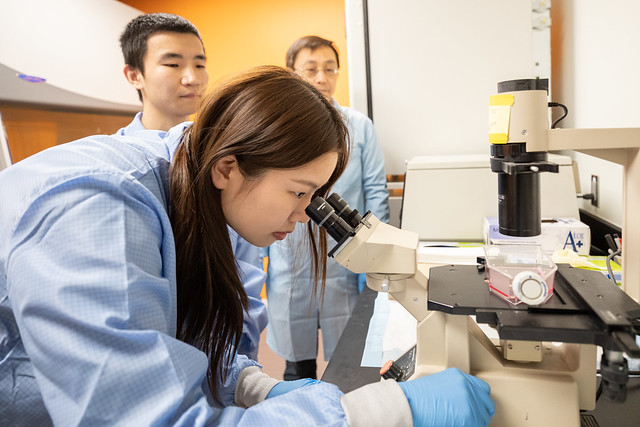PhD Application deadline: applications must be submitted by December 15th, 2023 for admission to begin the program in Autumn Quarter 2024.
Apply for PhD
MS Application deadline: Applications are accepted for Autumn admission only. Applications must be submitted by March 15th, 2024 for admission to begin the program in Autumn Quarter 2024.
Apply for MS
Make impactful scientific discoveries and develop as a member of the UW Pharmaceutics community

As a graduate student in the Department of Pharmaceutics, you will be in a program that is nationally and internationally recognized for its bench-to-bedside (translational sciences) multidisciplinary research in drug disposition and delivery.
Financial support
Tuition and stipend are covered for the majority of PhD students throughout training with the help of funding from the National Institutes of Health (NIH), the pharmaceutical industry, foundations, and regulatory agencies. Master’s degree students are primarily self-funded for their two-year program.
Find your career path with guidance from exceptional faculty
Your training will be in a highly collegial, collaborative atmosphere by award-winning faculty that pride themselves in mentoring their graduate students for outstanding careers in pharmaceutical industry, academia, regulatory agencies and research institutions.
Learn and collaborate within UW Health Sciences

The Department of Pharmaceutics is within the UW Health Sciences Building, where the Departments of Medicinal Chemistry and Pharmacy are also located. Faculty of all three departments encourage an environment of collaboration, allowing multidisciplinary and joint training of graduate students. These three departments are co-located with the research-intensive Schools of Medicine, Nursing, Dentistry, Public Health, and Social Work. These schools are ranked top 10 in the U.S., making UW one of the top two American health sciences schools. The proximity to health science researchers and other research-intensive departments within the campus (e.g., bioengineering, chemistry), in combination with the collaborative spirit of the university, facilitates multidisciplinary research (e.g., in vitro to in vivo extrapolation (IVIVE) studies in patients, healthy volunteers, and non-human primates). It also allows graduate students access to state-of-the-art equipment.
Explore the latest research, awards, and announcements on our PCEUT News page.
Program Objectives and Outcomes

The doctoral and master’s degree programs in Pharmaceutics train research scholars in the fundamental aspects of drug absorption, disposition, and drug delivery to optimize drug efficacy and minimize drug toxicity. Drug disposition, or pharmacokinetics, pertains to facets of drug absorption, distribution, delivery, and elimination. Areas of emphasis include:
- Drug absorption and excretion: drug transport, the way drug molecules travel into the body, sites of drug action and excretory fluids
- Drug metabolism: enzyme-catalyzed molecular transformations that often impart different disposition and pharmacological properties compared to the parent molecule
- Drug delivery: processes for enhancing the absorption of a drug and targeting it to the site of action and away from the site of toxicity
You will demonstrate an understanding of drug and endobiotic reactions, including drug and endobiotic metabolism, drug and endobiotic transport, drug and endobiotic disposition as well as drug and endobiotic absorption.
You will probe the effects of alteration of physiological and biochemical processes which may occur due to drug interactions, targeted drug delivery, pregnancy, age, diseases, and genetic variations on drug disposition and pharmacological response. You will be able to elucidate the relationship between the kinetics of drug and metabolites in various body compartments or tissues and the manifestation of therapeutic and toxic effects. You will study drug-drug interactions (DDI) and toxicokinetics as well as other facets in the bench-to-bedside medicine research.
You will be trained in pharmacokinetics, pharmacodynamics and pharmacometrics through basic biochemical, cellular and molecular techniques, quantitative analytical methods, and in the elaboration of mathematical models (e.g., PBPK modeling and simulation) and simulations to describe the pharmacokinetics of drugs and their actions.
Sound interesting? For more information, please click on any of the links located at the top right of this page and visit research profiles of individual faculty members.